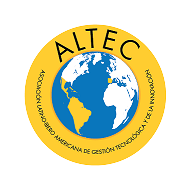Busca do Conhecimento Técnico Científico: análise de rede informal interorganizacional

View/
Date
2013Author
Freire, José R.S.
Farina, Milton C.
Pascotto, Siomara M.P.
Dos Santos, Isabel C.
Metadata
Show full item recordAbstract
Este estudo analisa a busca do conhecimento entre os atores das redes sociais interorganizacionais informais em um Centro de Pesquisa Agropecuária da Embrapa, visando compreender como ocorre o compartilhamento do conhecimento técnico científico. A questão de pesquisa busca responder como a rede social dos pesquisadores da Embrapa Gado de Corte, tal como se apresenta em termos estruturais e relacionais, pode ser considerada facilitadora do processo de geração do conhecimento. Utiliza-se pesquisa quantitativa descritiva e qualitativa. A abordagem da Análise de Redes Sociais (ARS) exige o aspecto quantitativo na mensuração das relações. A coleta de dados envolve 52 pesquisadores, sendo os dados tratados pelo software Ucinet 6.0 for Windows, que permitiu a visualização das características das redes analisadas. Os resultados encontrados expõem que a rede possui baixa densidade do potencial de seus laços, inferindo ações na política de gestão de pessoas e incentivos ao compartilhamento do conhecimento. This study analyzes the pursuit of knowledge among actors in social networks in an
informal inter-organizational Agricultural Research Center of Embrapa, in order to
understand how it works as a process while sharing of technical and scientific knowledge.
The fundamental question in this research seeks to answer how the social network of
researchers at Empraba cattle unit, as it is presented in terms of structural and relational,
can be considered a facilitator of the knowledge generation process. The research uses
quantitative, qualitative and descriptive methods. The approach of Social Network
Analysis (ARS) requires the measurement of the quantitative relationships. Data collection
involves 52 researchers whose data were processed by software Ucinet 6.0 for Windows,
which allowed visualization of the characteristics of the analyzed networks. The results
demonstrate that the network has low density potential of their ties, inferring actions on
people management policies and incentives for knowledge sharing.

